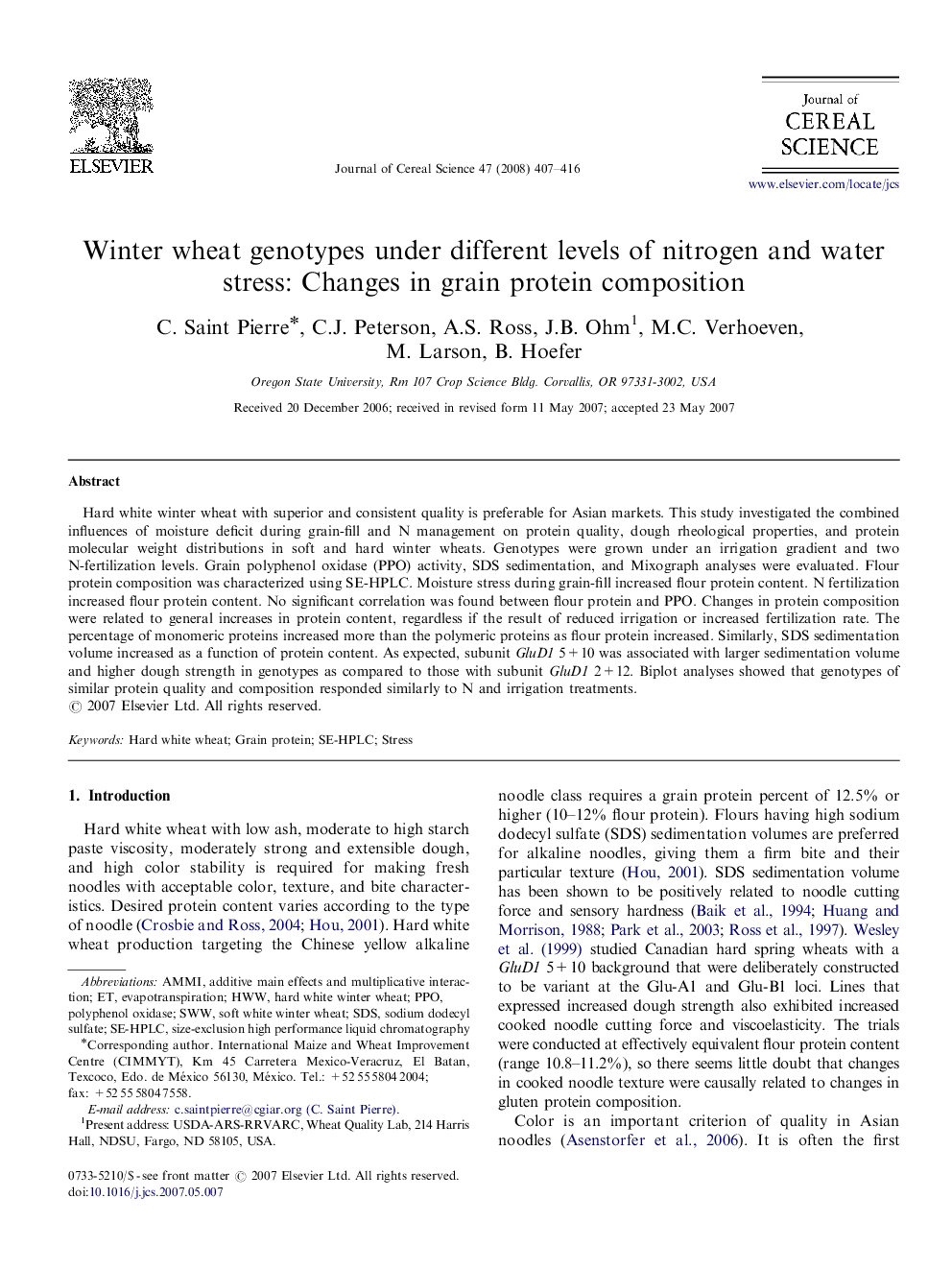| Article ID | Journal | Published Year | Pages | File Type |
|---|---|---|---|---|
| 4516565 | Journal of Cereal Science | 2008 | 10 Pages |
Hard white winter wheat with superior and consistent quality is preferable for Asian markets. This study investigated the combined influences of moisture deficit during grain-fill and N management on protein quality, dough rheological properties, and protein molecular weight distributions in soft and hard winter wheats. Genotypes were grown under an irrigation gradient and two N-fertilization levels. Grain polyphenol oxidase (PPO) activity, SDS sedimentation, and Mixograph analyses were evaluated. Flour protein composition was characterized using SE-HPLC. Moisture stress during grain-fill increased flour protein content. N fertilization increased flour protein content. No significant correlation was found between flour protein and PPO. Changes in protein composition were related to general increases in protein content, regardless if the result of reduced irrigation or increased fertilization rate. The percentage of monomeric proteins increased more than the polymeric proteins as flour protein increased. Similarly, SDS sedimentation volume increased as a function of protein content. As expected, subunit GluD1 5+10 was associated with larger sedimentation volume and higher dough strength in genotypes as compared to those with subunit GluD1 2+12. Biplot analyses showed that genotypes of similar protein quality and composition responded similarly to N and irrigation treatments.
